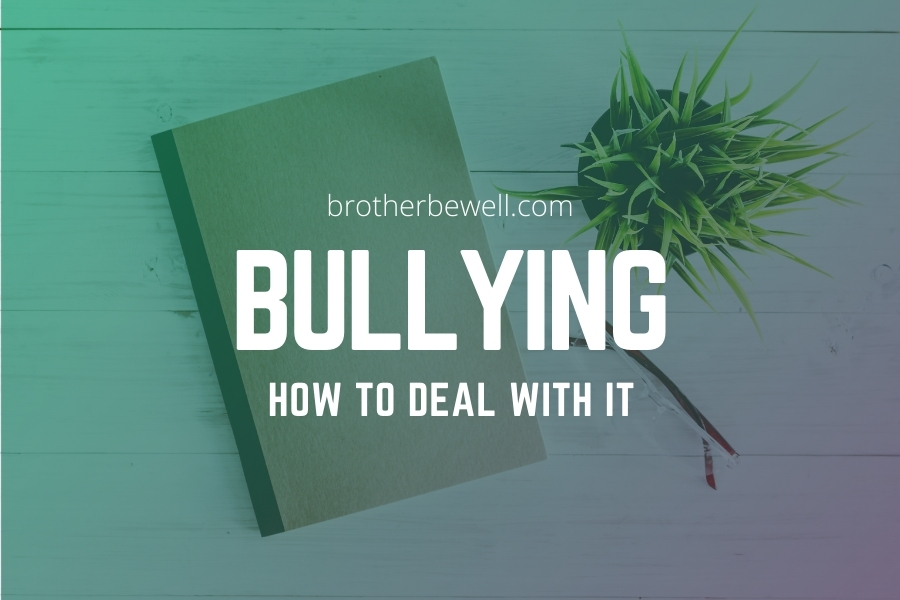Bullying is a type of behavior that can really hurt others. If you’ve ever been bullied, it’s likely you experienced a variety of emotions, like anger, hurt, frustration, sadness, and more. Chronic bullying that occurs long-term can be really tough to deal with, so knowing what to do and who to reach out to for support can help.
Bullying Defined
The act of bullying is defined as behavior that uses aggression, coercion, threats, humiliation to intimidate or pick on another. It tends to happen repeatedly, with the bully intentionally targeting and picking on the same person(s) regularly.
Who do bullies typically pick on? In many cases, they choose someone based on one or more of the following:
- Their physical appearance (short, tall, etc.)
- How they act
- Their sexual identity (LGBTQ)
- Race
- Their popularity
Types Of Bullying
Bullies tend to target those who are vulnerable, smaller, or perceived as weaker. They may call them names, make fun of them, exclude them from activities, or shove, hit, or kick them.
There are four major types of bullying, including:
1. Physical Bullying – Physically hurting another. Behaviors include:
- Shoving
- Hitting/Punching
- Kicking
- Tripping
- Spitting
- Taking something they own
- Breaking one of their possessions
2. Verbal Bullying – Using words vocally or in writing to hurt another. Behaviors include:
- Calling them names
- Teasing
- Taunting
- Threats
- Making inappropriate sexual comments
3. Social/Relational Bullying – Intending to hurt another’s relationships or reputation by:
- Starting a rumor
- Leaving someone out intentionally
- Coercing others not to like someone
- Humiliating another in front of others
4. Cyberbullying – Bullying that happens online.
Today, with most young people having access to the internet and social media, cyberbullying has become quite a problem. It used to be bullying would usually only occur while at school. Now it can happen online at anytime and can also be done anonymously.
Bullies online tend to use relational aggression or harass directly. They start rumors and spread them. They may harass sexually or engage in cyberstalking. They say extremely mean things that they may not if they were in front of the person.
Cyberbullying can be devastating to those who are recipients, especially if it’s repeated behavior. Sometimes the person being bullied won’t know who the bully is either, as they create false profiles and attack under that name. The repeated bullying can make recipients feel very distressed, sad, angry, and frustrated.
What To Do If You Are Being Bullied
Being bullied can feel awful. You may feel scared, confused, and hurt. You may also feel alone. If you or someone else you know is being bullied, the following are some things you can do:
- Remain as calm as you can. Remember that bullies thrive off intense emotions from recipients.
- Report the bullying to your teachers, parents, or another adult who can take action.
- Try not to let the bully’s words get to you.
- Walk away if you can.
- If you’re being bullied online, let your parents know. If you don’t know who it is and it happens repeatedly, you may want to deactivate your account for a while.
- Don’t respond to bullies online. Engaging in chatting may make you feel worse. Delete what you can.
- Remind yourself that bullies are likely to be experiencing a lot of inner pain. They’re bullying you in an attempt to feel better about themselves. This doesn’t make it right, but a reminder can help you feel less distressed about it or less apt to take it personal.
- If bullying happens at a certain location at school or the park, avoid those areas.
- Tell an adult if you’re having a tough time handling the bullying.
- Talk about how it makes you feel. Don’t bottle up your emotions inside.
- If there are bystanders, try to activate them to get on your side. Bullies tend to enjoy the attention of the audience. Get the audience on your side, and the bully will think twice about bullying you again.
When Bullying Gets Out Of Control
If you’re the victim of bullying and you are struggling a great deal emotionally because of it, reach out for help. You don’t have to deal with bullying on your own. Talk to your parents, teachers, school counselor, or a therapist in your community. If you don’t have anyone you feel you can talk to, or if you are dealing with major depression or suicidal thoughts, call the National Suicide Prevention Lifeline at 800-273-8255.



